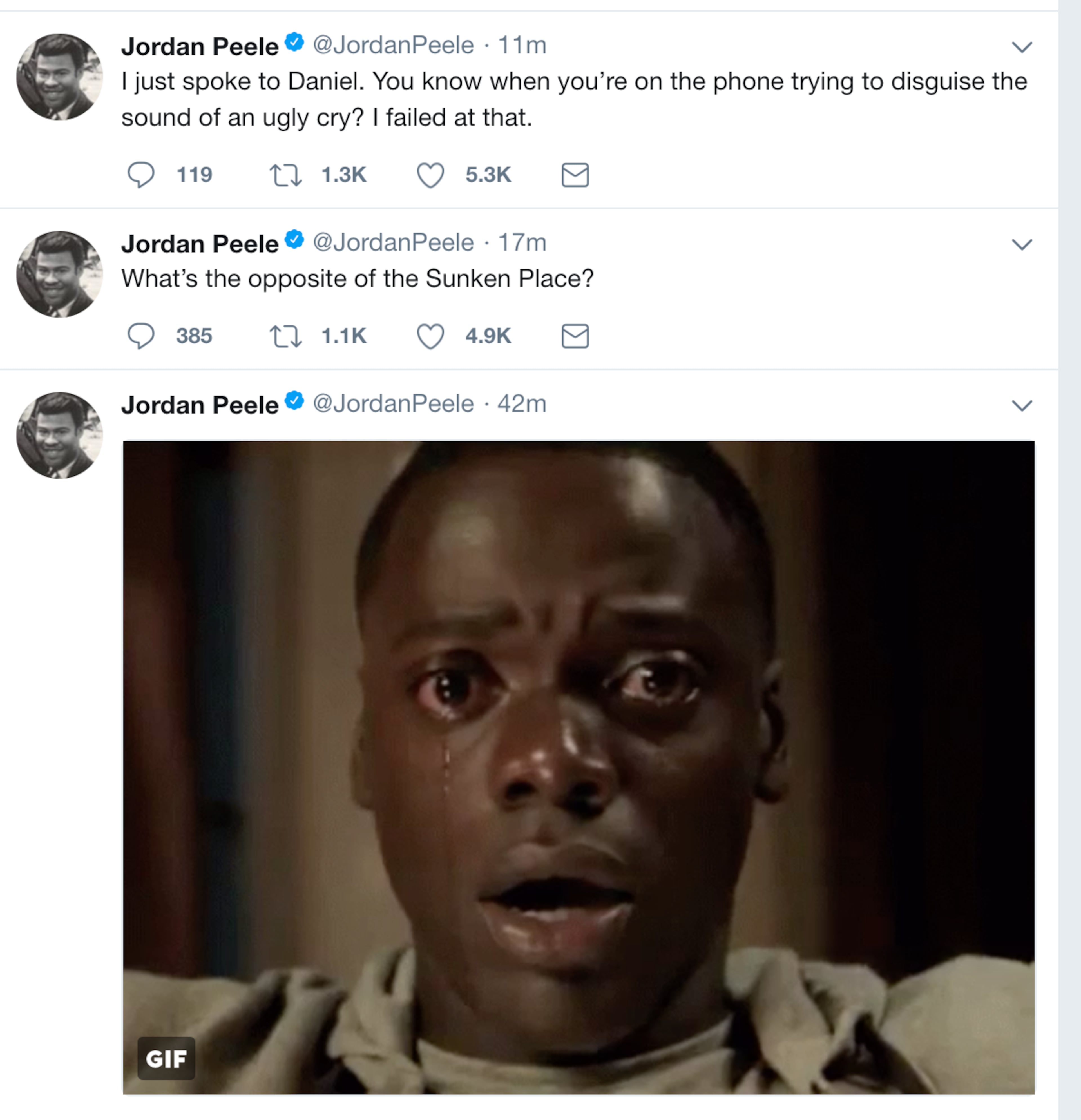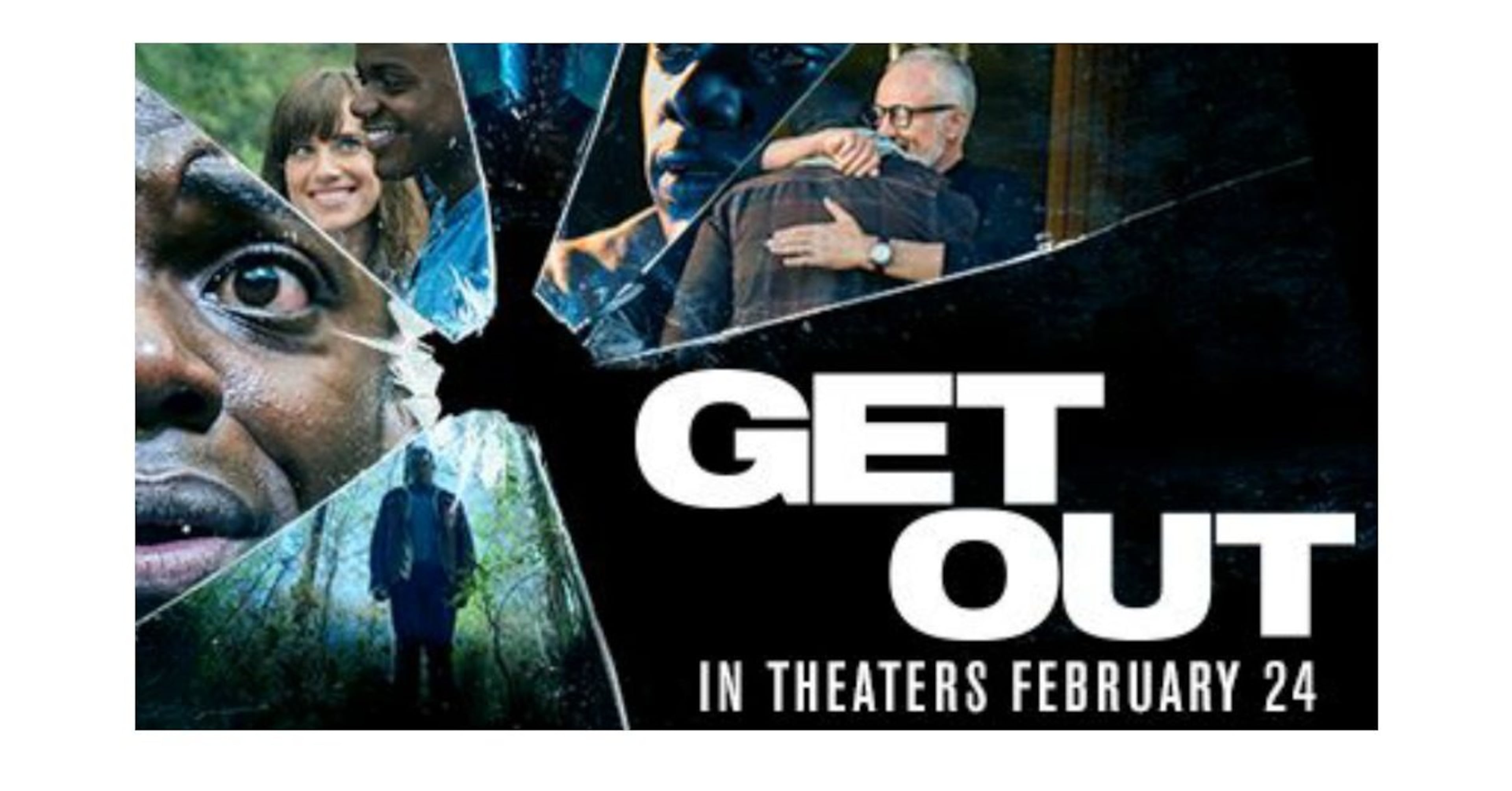Our interview with "Get Out" director Jordan Peele

Not quite a year ago, about a month into Donald Trump's presidency, Jordan Peele and I met at JCT Kitchen in Atlanta. "Get Out" was just about to be released. The stunning, brilliant, disturbing work would make him the first black writer-director to hit the $100 million mark at the box office with a debut feature.
This was months before the president made headlines after reports of his calling Haiti and countries in Africa by a disparaging term , before the government shutdown and before Trump's social-media event conferring the so-called "Fake News Awards."
In other words, a lot's happened since then. The Oscar nominations were announced Tuesday morning and "Get Out" is now up for four awards including best-picture honors after being nominated, nonsensically, for a Golden Globe in the comedy/musical category.
"'Get Out' is a documentary," Peele intoned via Twitter ahead of the Globes. He's up for best director and best original screenplay and Daniel Kaluuya is up for best actor. Peele's tweets have been celebratory this morning:

MORE: The Oscar nominations
Here's our interview, from Feb. 2017:
One of the most horrific things I ever saw happened in real life, not on a movie screen.
At a black-tie gala, a patron asked for some coffee. Only the gentleman he asked to fill his cup wasn't a waiter, but an African-American man - a fellow event guest - who just happened to be walking by. The patron clearly had assumed a black guy in a tux was there to serve.
Filmmaker Jordan Peele relates all too well.
"I've been asked to hang up coats," he said during an interview this week to discuss his new movie "Get Out," in theaters Friday.
The last time Peele was in Atlanta, he and comic partner Keegan-Michael Key were here promoting their comic collaboration "Keanu." That press junket was held at the Clermont Lounge strip club, in keeping with certain scenes in that movie, and the promotions folks gave out stuffed kittens in the image of its furry star.
"Get Out," Peele's directorial debut, is quite a departure from "Keanu" or the acclaimed "Key and Peele" Comedy Central series, and on this visit Peele sat for a quiet, insightful talk about his new project. No themed venue or props needed this time.
"I wrote this movie in the Obama presidency. It felt like race was not being discussed in a way I felt like it deserved to be," Peele said. "For the past couple of years and especially now, racial tension and racial conversation is front and center in this country."
In "Get Out," an interracial couple (Rose, played by Allison Williams, is white and Chris, played by Daniel Kaluuya, is black) confront first some fairly predictable tension during a trip home to meet her parents. Things start getting seriously creepy in a hurry and then .. well, no spoilers. But trust us .. it's scary how good this movie is.

"The similarity between comedy and horror is the importance of pacing," Peele said. "In both genres you have to build tension and release it very strategically. Everything I learned in my comedy career really came in handy."
The movie has been compared with good reason to creepy classics like "The Stepford Wives" and "Rosemary's Baby" (both based on novels by the same author, Ira Levin), that worked social commentary in with the spookiness.
"People my generation will think of 'Rosemary’s Baby' or 'Night of the Living Dead.' For people 25 and younger, you’re watching a movie that hasn’t existed yet," Peele said. "This is a conversation that has been ushered in by this younger generation who are like, why is race so important to people older than us?"
The complex pacing and satisfying twists in "Get Out" give it good, old-fashioned scary movie bona fides. Putting his rich comic repertoire to new use, Peele gives the audience some breathing room with Rod, a TSA agent played by Lil Rel Howery.
Peele said his movie is going to serve the type of audience that likes to shout at the screen ("Get out!" indeed) but hopes the dialogue will continue long after the final credits roll.
"Racism is always going to be present in this country. Racism is not a one-sided dynamic," he said. "This movie is a way to promote that conversation in a way that’s fun. I feel like discussion, no matter how difficult it is, is key."


